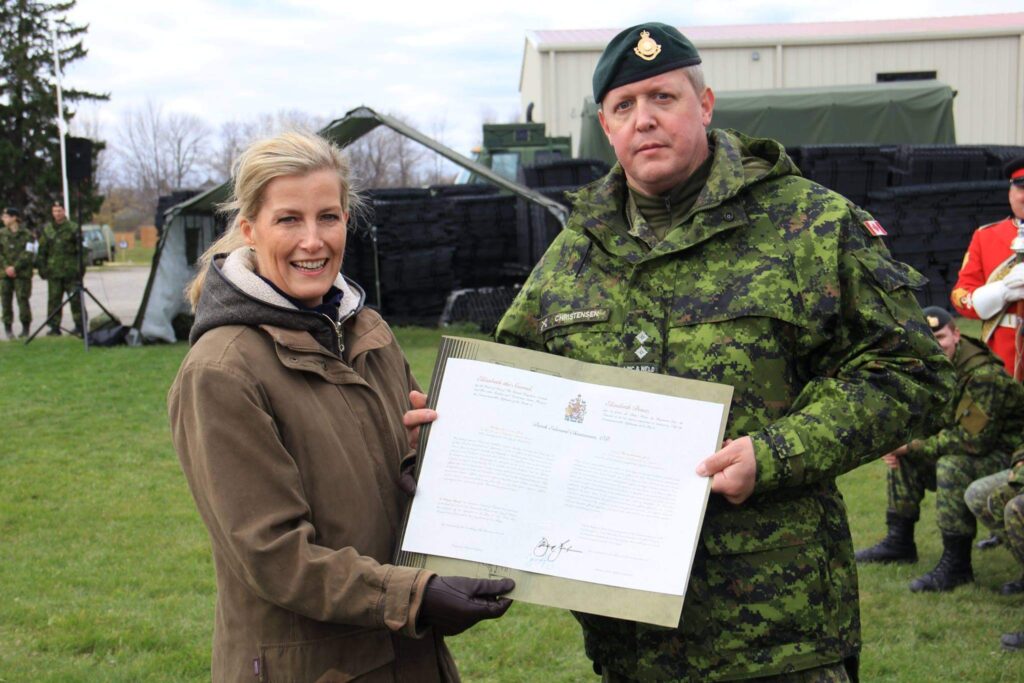Few occupations are as deserving of the title ‘hero’ as health care workers; Derek Christensen is no exception.
With more than 31 years of experience as a clinician, manager and educator in the mental health and addictions field, he has paved the way for municipalities across Ontario to provide better care for their communities.
Although impressive on its own, there is more to Christensen than simply a career in health care. Before graduating from Niagara College’s Nursing Program in 1991, he began his over 38-year career in the Canadian Forces Reserve Army. He joined in 1984 as a non-commissioned member and has risen through the ranks to Warrant Officer. In 2015 he became a Commissioned Officer and is currently a Captain in the Lincoln and Welland Regiment.
It was during this time that he was exposed to the Canadian Forces Medical system which, ultimately, led him to NC and a career in health care.
“As a young person I had joined the Canadian Armed Forces, I was 17 at the time,” he said. “I’m originally from Niagara but have also lived in Thunder Bay and was in a Reserve Army Regiment there but came back here to the Lincoln and Welland Regiment in Niagara where I was in a bunch of different roles.”
Soon after graduating, his health care and military careers combined and led him to Lakehead Psychiatric Hospital in Thunder Bay, Center for Addiction and Mental Health (CAMH) in Toronto, where he gained significant experience.
2006 was the turning point for his career. He became the first-ever Regional Educator for Mental Health and Addiction Services with Niagara Health, a position he holds to this day. In the 16 years he has been in this vital role, Christensen has developed a staff orientation program, general educational resources and specific training for new policies and procedural initiatives.
“There weren’t many educators in general, even in Niagara Health at that point. I think there was only seven or eight of us,” he said. “So, I was the first person and there was nothing at all. I had to sort of develop it from scratch.”
Mental Health and Addictions Services is now one of the largest programs in the Niagara Health system, with about 475 staff and physicians, and 28 inpatient and outpatient services at six different sites throughout the region. The training and education necessary are vast, as each program is quite varied.
As the educator, Christensen is responsible for the research, development, implementation and evaluation of staff training and education related to all 28 services.
Although sophisticated now, the program had humble beginnings, with Christensen building much of the program from the ground up. Before 2006, Niagara region had only three hospitals with single small psychiatric units and an associated outpatient department. Because of their size and singularity, they didn’t provide any sort of inpatient specialty.
Once Niagara Health was founded in 2005 and work began on amalgamating these services into a more efficient model, “it completely changed everything in Niagara and how we did it, especially mental health care,” he said.
“Now we have the whole spectrum of different services that you would see in a larger center here … we went from having a single psychiatric unit in each place, which had a limited ability, to specialized psychiatric care.”
Though he is decorated with a plethora of accolades, such as Queen Elizabeth II Diamond Jubilee Medal for outstanding service to Canada (awarded in 2012), the 2009 Lincoln and Welland Regiment’s Senior Non-commissioned Officer of the Year award, and the 2008 Niagara Health System’s Award for Excellence in Direct Patient Care, it is his role in creating a more well-rounded mental health care system for Niagara that Christensen is most proud of.




